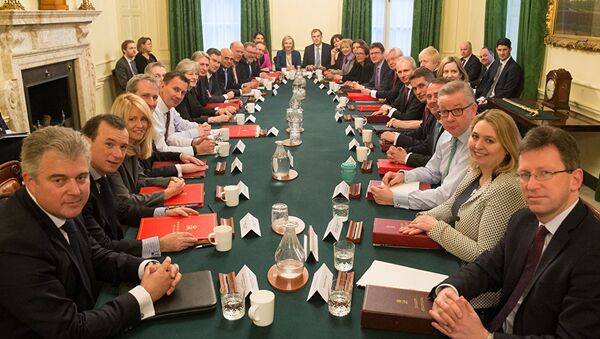'Wealth of Talent and Experience'
The results of the June 8 general election saw Theresa May and her party lose their parliamentary majority. What was meant to cement the Tories' stronghold in Westminster in the face of complex Brexit negotiations with the EU saw May’s party lose on several fronts.
The Conservatives lost 13 seats and had to form a much criticized coalition with the Democratic Unionist Party (DUP), while their opponents – Labour Party — received their highest share of the vote in 20 years. Theresa May didn’t get off to a good start and in contrast to her promise of a "strong and stable" government, her premiership had weakened and was now dependent on DUP to salvage the Tories’ rule in Westminster.
May entered the new term in office with a promise of a talented and experienced Cabinet, equipped to deliver on all fronts.
READ MORE: Unholy Alliance: Theresa May's Desperate Deal With DUP Could Endanger NI Peace
“At this important time for our country, they need stability and certainty provided by the government. That’s what I’ve been doing today — putting together a cabinet that reflects the wealth of talent and experience across the Conservative party. A Cabinet that will get on with the job of the government that is about delivering successful Brexit negotiations,” May said in a televised interview.

Another One Bites the Dust
The first member of May’s Cabinet to shatter the image of the rock solid team of ministers was the then-Defense Secretary Sir Michael Fallon.

Less than six months into the new government’s term, allegations surfaced that Fallon "repeatedly and inappropriately" touched journalist Julia Hartley-Brewer's knee during a dinner in 2002. Two days after the accusations of sexual misconduct were made public, Fallon handed in his resignation, admitting that his behavior had "fallen short" of the standards expected by the UK military.
READ MORE: Female Journalist Accuses Ex-UK Defense Secretary Fallon of Trying to Kiss Her
Only a week separated Fallon’s departure from the resignation of another member of Theresa May’s Cabinet. On November 8, then-Secretary of State for International Development Priti Patel was forced to step down after it emerged she failed to be honest with May about 14 unofficial meetings with Israeli ministers, business people and a senior lobbyist.
"While my actions were meant with the best of intentions, my actions also fell below the standards of transparency and openness that I have promoted and advocated," Patel wrote.
READ MORE: Did They Know? Competence of UK Intel Questioned Over Priti Patel Israel Drama
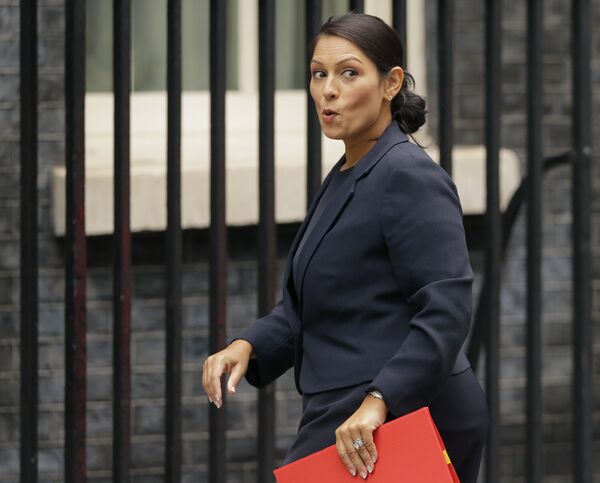
The next minister to go was Damian Green, the first secretary of state and Theresa May's de facto deputy. Green resigned on December 20, 2017 following an investigation into alleged inappropriate behavior towards journalist Kate Maltby in 2015 and claims that "extreme pornography" had been found on his work computer.
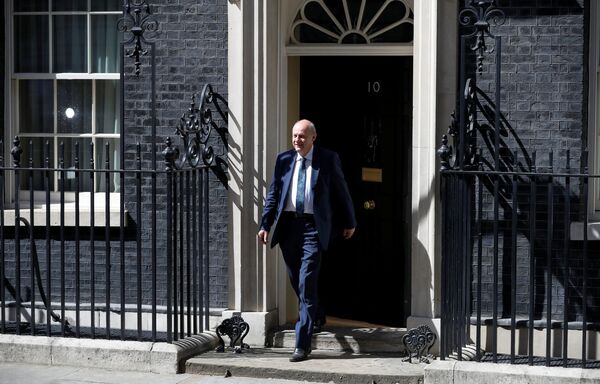
The Cabinet investigation ultimately concluded that Green’s repeated denials of the computer findings were "inaccurate and misleading" and that the Maltby allegations were "plausible." In his resignation letter, Green accepted the investigation's conclusion and apologized that "statements were misleading."
Come 2018 and the prime minister had launched a Cabinet reshuffle, sparked by the Green’s resignation a month earlier. May, however, stumbled upon resistance within, indicative of her weakening control. Health Secretary Jeremy Hunt refused to be moved to the position of business secretary, while Secretary for Education Justine Greening stepped down, as she refused the position of Work and Pensions Secretary.
READ MORE: Political Analyst Explains the Real Goals of Theresa May’s Cabinet Reshuffle
The changes, however, didn’t include replacement of the so-called "big four," including Chancellor Philip Hammond, Foreign Secretary Boris Johnson, Home Secretary Amber Rudd and Brexit Secretary David Davis, who all remained in their posts. Whether the reshuffle was meant to throw dust in the public’s eyes or simply refresh the image of the ruling party following a number of ministerial breaches, it failed to carry out any significant adjustments and exposed that the PM was in office but not really in power.
It took less than 4 months until May’s team was dealt another blow and the party’s reputation — another tarnish. Embroiled in the controversy of the Windrush generation scandal and Home Office’s targets on migrant deportation, the Home Secretary Amber Rudd succumbed to pressure and resigned on April 29, 2018 – making it the fourth high-profile resignation of May’s Cabinet in the last six months. Critics online pointed out that ill-treatment of people belonging to the so-called Windrush generation was actually Theresa May’s fault during her time as Home Secretary and was eventually inherited by Rudd.
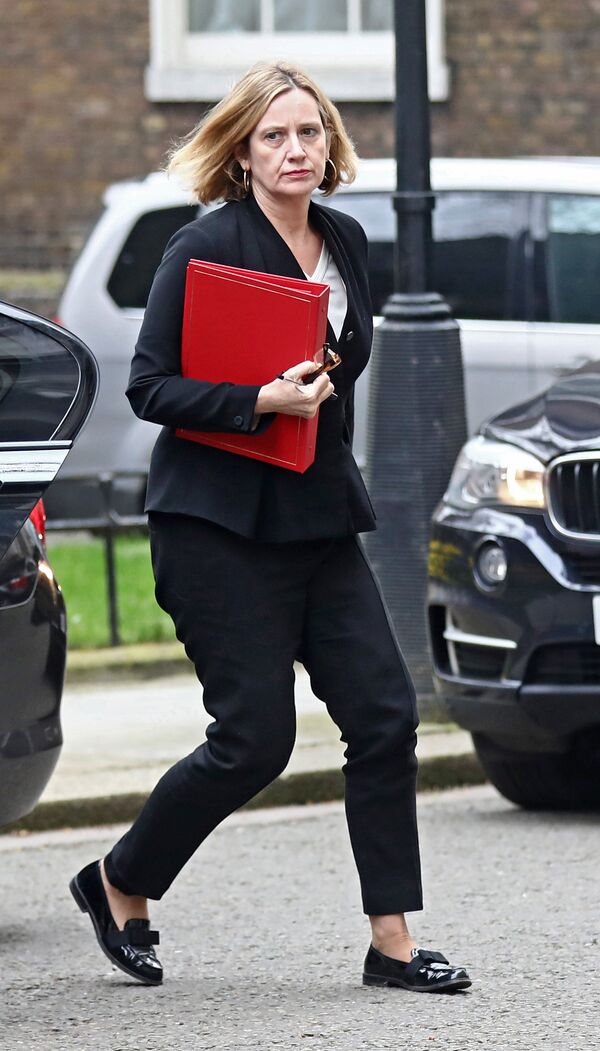
Not Fit for Work
Even if one was to set aside the fiasco of the "strong and stable leadership" oath, May’s assurance earlier in 2017 that her cabinet was the embodiment of talent and experience has been undermined on several occasions during the course of the year.
May said that hers would be the government that is about delivering successful Brexit negotiations. As it stands, the reality of the Tories’ success in talks with the EU is far from the truth.
No clear plan on elucidating the vital elements of the Brexit deal has so far been revealed, including a resolution to the customs union debate, the hard border issue between Northern Ireland and the Republic of Ireland and the future of EU citizens residing in the UK.
READ MORE: Discord in the House of May: Tory MPs Clash Over UK's Future in EU Customs Union
In December 2017, Secretary of State for Exiting the European Union David Davis made the British public doubt his competence in leading the nation out of the European bloc.
The minister in charge of securing the UK’s successful exit from the EU — Davis — admitted during questioning by the cross-party Select Committee for Exiting the European Union in 2017 that the government hasn’t produced any impact assessments of Brexit, even though he had said in 2016 that research was being conducted.
“We are in the midst of carrying out about 57 sets of analyses, each of which has implications for individual parts of 85 per cent of the economy. Some of those are still to be concluded,” Davis said in 2016.
David Davis has just admitted that his department have conducted no analysis on the economic impact of Brexit.
— James Melville (@JamesMelville) December 6, 2017
This is gross negligence. Our government are winging it on the biggest issue facing our country in 70 years. An appalling dereliction of duty.pic.twitter.com/vW6fXcnoo9
Finally, there is Boris Johnson. Britain’s Foreign Minister, although firmly in office since July 2016, has faced calls for resignations on numerous occasions, since he assumed the post of the Britain’s top diplomat.
READ MORE: 'If May Wants to Sack Anybody, Start With Boris' — Israel Expert on Priti Patel
Among the latest gaffes by Mr. Johnson is the misleading claim on the case of the Sergei Skripal poisoning in Salisbury. The foreign secretary insisted during an interview with Deutsche Welle that Porton Down laboratory scientists were "absolutely categorical: when they allegedly assured him that "there’s no doubt" that the chemical used to poison former Russian spy Skripal came from Russia. Later, it emerged that the lab was unable to determine the chemical’s "precise source."
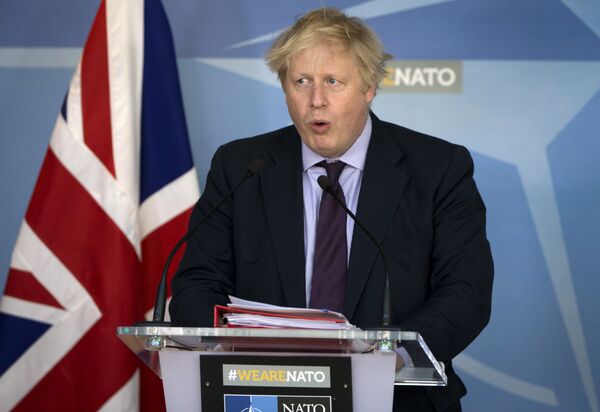
Mr. Johnson has managed to keep his post, despite a number of diplomatic disasters during which he: mixed up the war-torn country Yemen with Lebanon, referred to Africa as a country, said that the Libyan city of Sirte could be the new Dubai, provided the dead bodies are cleared from its streets and exacerbated the position of a detained British national in Iran.
'Complete Shambles'
Theresa May’s government has been through an awful lot since she called for a snap election in April 2017, but it appears most of the troubles have been caused by the Cabinet members’ lack of experience and judgment when it comes to adhering to ministerial code.
Even when May had the chance to replace the weak links in her team with new members, her choices would sometimes puzzle critics, as in the case of the new secretary of defense, Gavin Williamson, who has no prior military experience. The aftermath of nominating a largely unskilled candidate as top defense chief wasn’t long in coming. On March 15, Williamson raised eyebrows when he said in an official speech that Russia “should go away and should shut up.” He was answering a question on Britain's actions in relation to the case of Sergei Skripal.
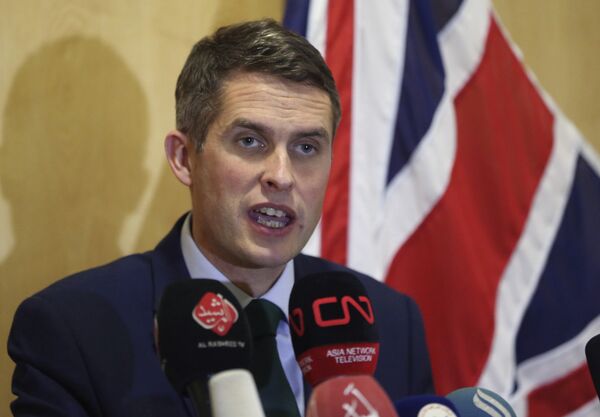
With the Brexit deadline looming and local elections coming up on May 3, Theresa May continues to face ongoing challenges, while scandals within her own party continue to undermine her control and chances of success.
Council seats in London and other places in England are to be contested on Thursday in the biggest test of public opinion since last year's general election. Whether the Conservative Party manages to hold on to its prominent councils of Wandsworth and Westminster or lose them to Labour, will be telling of the Tories’ future potential.
All this is taking place against the background of Jeremy Corbyn’s speech blasting the not so "strong and stable" rule of Theresa May during the Prime Minister's Questions session in parliament on April 2.
The truth facing voters is that with the Tories you pay more and get less.
— Jeremy Corbyn (@jeremycorbyn) 2 May 2018
Tomorrow at the local elections you can send them an unmistakable message by voting Labour. #PMQs pic.twitter.com/fla104QAce
"The economy is slowing, homelessness is rising, more children are living in poverty; the Home Office in chaos and the government making a complete shambles of the Brexit negotiations. They are damaging our NHS, damaging our children’s schools, cutting police as crime scores – and they claim to be strong and stable."

